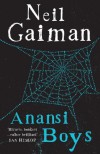William's Book Blog
Mostly book reviews. Very rarely I'll allow William Campbell Powell (author) to write a blog entry on publishing activity, but he's under orders to keep that stuff over on his Facebook page and on http://williamcampbellpowell.com
Currently reading
The Bees - interim

I've been dipping into this, rather than totally throwing myself into the book. (That's not the book's fault - it's entirely that disruptive thing called life, intruding into the process of reading.)
So I'm less than a third into the book, and much of that has been scene-setting - life in the hive, hierarchies. There's been some conflict and tension - an invasion by wasps that allows Flora to shine, and has brought her to the attention of the Queen - but until this current page, nothing bar the cover blurb to indicate that Flora's progress would be anything but upwards.
Finally it's come, and I expect that from here on in the ride will be a lot rougher for Flora.
At this point my warning is that it has taken a lot of pages to get to the conflict point. Personally I'm not averse to this level of scene-setting, but it's definitely not a book that falls into the "page 1: protag stuck up a tree, page 2: tree catches fire, page 3: arrested by CIA ... page 20: time for a bit of backstory" mould.
Instead I've been kept interested by some good worldbuild-by-showing writing. I feel involved in this world, ready to root for Flora when the going does get tough. Having a science background, I'm fascinated by Paull's depiction of a world of complex chemical triggering, being used for everything from deciding caste, through signposting within the hive, to communicating sophisticated stories as VR. It's a popularisation of science, yet if you allow for a anthropomorphic licence, it's probably true enough.
I'd hope that YA readers would persevere with this, which I'd characterise as a great bridge to adult speculative fiction.
 1
1








